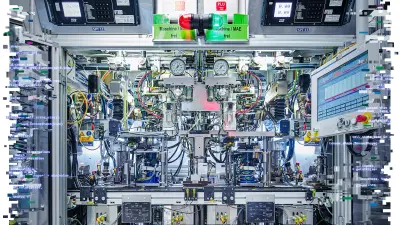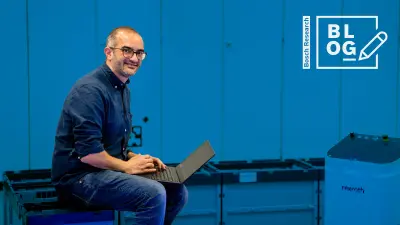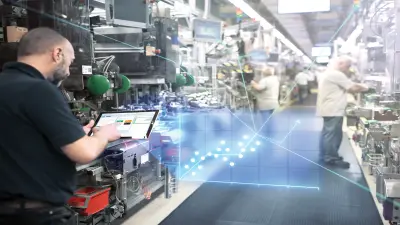Innovation needs industry
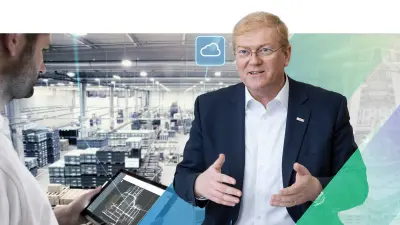
2023-04-20
The industrial sector isn’t just delivering a constant stream of products; it also delivers innovations. If we want to tackle the challenges we face, we need those technological solutions. And we need more of them, not fewer.
by Stefan Hartung
As the world’s industry gathered at Hannover Messe over the past few days, everyone and everything was focused on transformation. The event’s main theme was well chosen, it must be said, as rarely before has it been so topical: the transformation that almost all companies are facing is fundamental and challenging, and climate change means there is no alternative. This trade show was important right now because it highlighted an essential dimension of industry that sometimes disappears from view behind all the clichéd images of coking plants, refineries, and steelworks. All the billowing smoke in those old photos obscures one of the vital contributions industry makes to our prosperity: innovation.
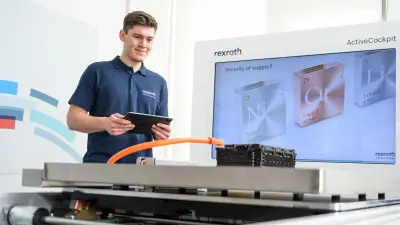
Great innovative power of German industry
When people talk about the importance of industry for Germany, they are usually thinking about the some 7.5 million people employed in manufacturing, or to the good 23 percent that manufacturing contributes to gross value added. What they often fail to appreciate in full is how crucial a role industry plays in Germany’s innovation landscape. In Hannover, this fact was brought firmly, if briefly, to the fore — and quite rightly so. According to the German Economic Institute (IW), a remarkable 86 percent of all patent applications in Germany come from industrial companies and the service providers that work closely with them. The core industrial sector alone accounts for more than 78 percent of patent applications. And this even though the manufacturing industry only employs just under one-quarter of the German workforce.
86%
of all patent applications in Germany come from industrial companies and closely related service providers
So are we industrial companies a particularly creative bunch? Gifted inventors? Of course, there are such people among us. But this wave of innovation is driven primarily by the considerable upfront investments that manufacturing companies put into the industrial groundwork. According to Stifterverband (the German Association of Donors for the Promotion of Sciences and Humanities), companies invested a total of 98.5 billion euros in research and development in 2019. Manufacturing companies were responsible for a good 85 billion euros of that, with the lion’s share, by the way, coming from the automotive industry.
Billion euro upfront investment required

Of course, companies don’t dole out that kind of money to their development departments for the sheer joy of research. Rather, it’s because they know very well that the only way for Germany’s typically cost-intensive industry to safeguard its successful position is by ensuring its products and processes are among the very best in the world. In the case of Bosch, it took billions of euros in upfront investment to ensure that it will soon be one of the first companies to manufacture sensors for microelectromechanical systems on 300-millimeter wafers at its wafer fab in Dresden. But this is the only way to establish state-of-the-art processes that ensure the European semiconductor industry will still be competitive a few years down the road.
This innovative strength is now more necessary than ever. If we want to make our economy, our mobility, our everyday lives climate neutral, what we need is more technical solutions, not fewer. Industry, as we all know, has contributed in recent decades not only to prosperity but also to climate change. Yet now it has the chance to go from being part of the problem to being part of the solution. Much has already been achieved in this regard — and whether in the form of heat pumps or wind power, fuel cells or biomass, sustainability in the 21st century is simply inconceivable without industrial processes and products. But to further accelerate this transformation, and to fund the necessary investments, we need growth and technological progress. Unfortunately, though, even the greenest economy cannot flourish on its own. Which brings us back to innovation: because as we know, hardly anything drives an upcoming structural change as efficiently as technical progress.
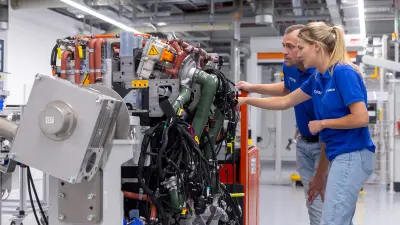
Are we losing our competitive edge?
In this respect, it’s worrying when the European Patent Office states in its latest review that the number of applications from Germany has fallen to its lowest level in more than a decade. Or when the German investment and development bank KfW reports years of decline in innovation activity among SMEs. These are not good signs. Are we losing our edge? Now, of all times, in the midst of change? Debate has been raging on this for quite a while, with some doomsayers already comparing German industry with a decrepit and neglected building. It is true that German companies, Bosch included, are setting up not only production lines abroad but research laboratories as well. But this is simply because they need to be close to their customers and markets. In my view, it is completely exaggerated to claim that this is evidence of an industrial exodus.
20%
is the green tech sector expected to contribute to gross domestic product as early as 2025
Industry will of course undergo profound change. But that doesn’t necessarily mean it will shrink dramatically. Admittedly, one or two particularly energy-intensive industrial operations may soon relocate to where green electricity or green hydrogen are more readily available than under Germany’s gray skies. In contrast, though — and this is just one example — price pressure will push many companies to develop even more efficient processes. And this, in turn, will open up new opportunities. In any case, the German government expects the green tech sector to account for almost one-fifth of gross domestic product by as early as 2025. But for this major transformation to be successful, we must leave it largely up to the market to determine how best to achieve our shared objective of reducing climate change. Nothing stifles innovation as reliably as excessive state intervention.
Innovations ensure greater efficiency and sustainability
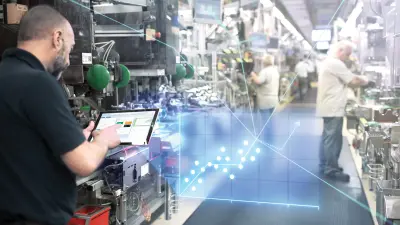
So, ten or twelve years from now, we will certainly see a different economy in Germany. Whether it will be weaker or more powerful than the present one depends on a number of well-known factors. We must succeed in supplying electricity from renewables at affordable prices, greatly expand digital infrastructure, cut red tape, and strengthen European cohesion. Above all, we must finally agree on a coordinated immigration and education policy. Because as we know, every technical advance depends on all those clever women and men who have made it their job to strive for continuous improvement. And of course, every innovation also needs skilled workers who can then implement the technology: you can’t have electricity without electricians, no matter how modern your power plant.
Incidentally, the images of industrial landscapes mentioned earlier are often devoid of people — and thus do even less justice to reality than those perpetually smoking chimneys. Millions of people work in our plants and factories to provide millions of others with goods and energy. And innovation is the driving force making this process increasingly efficient, sustainable, and beneficial. So it’s time to banish the billowing smoke not just from the air we breathe, but also from our minds. It only clouds our view of the future.
